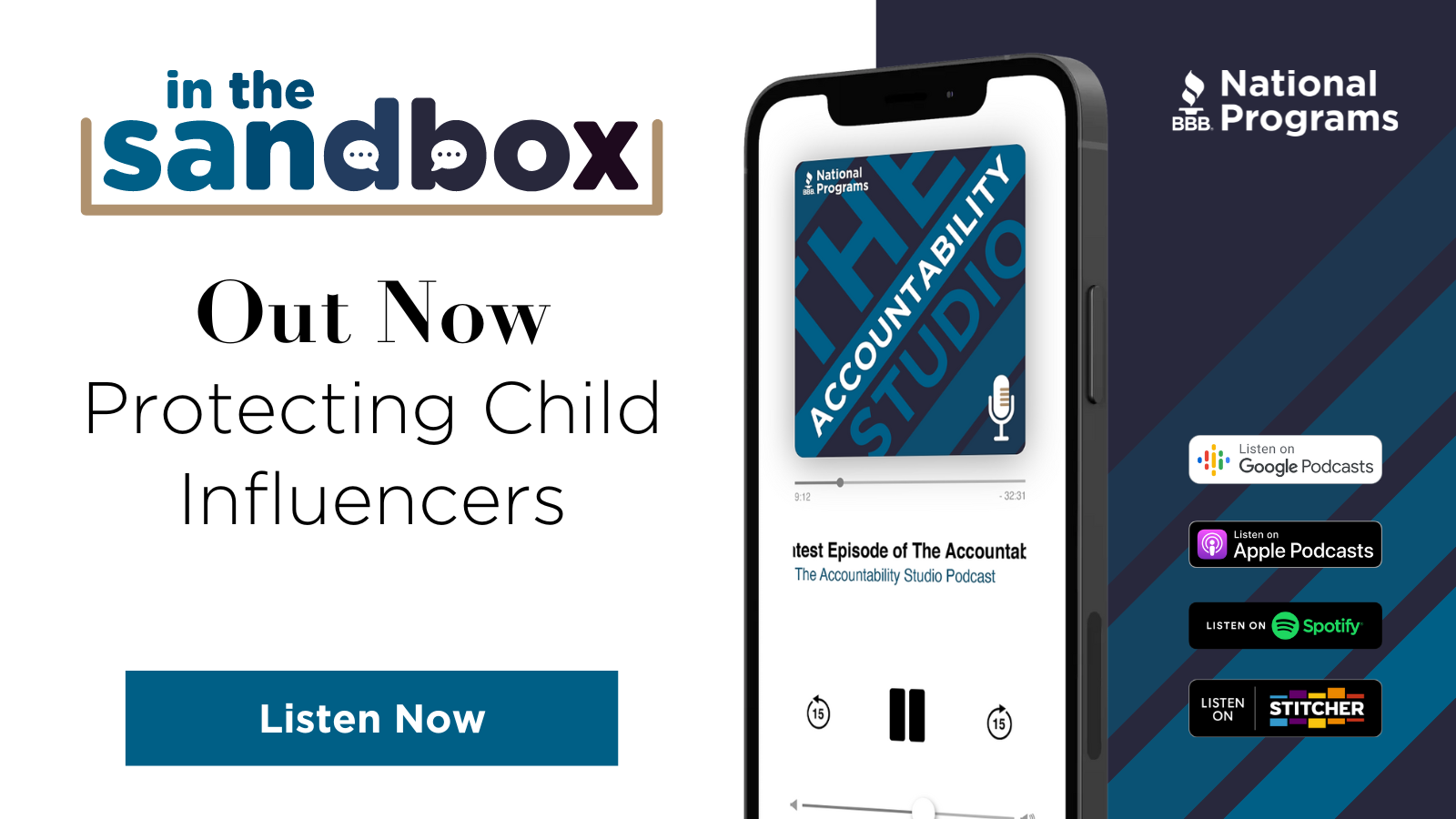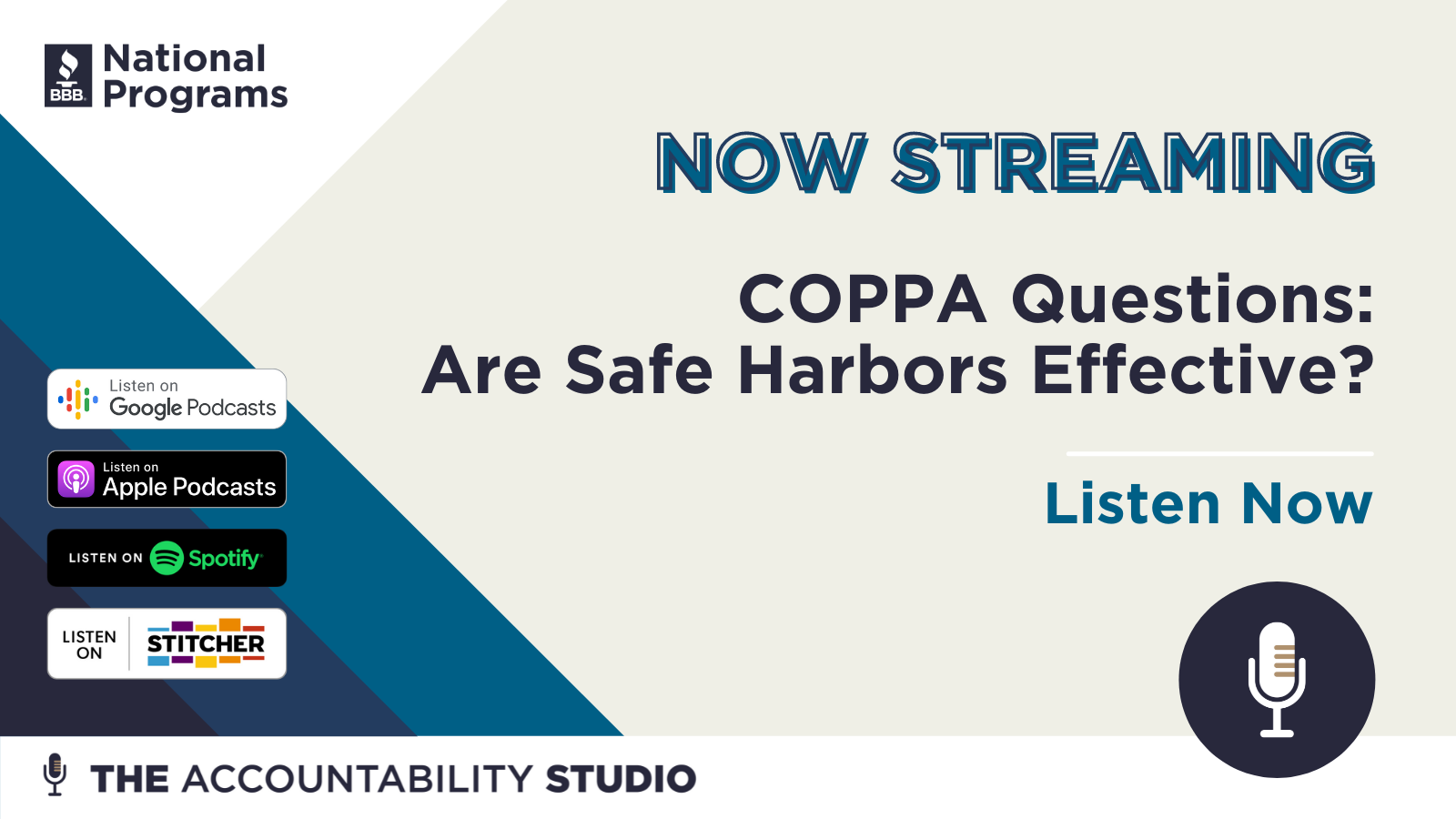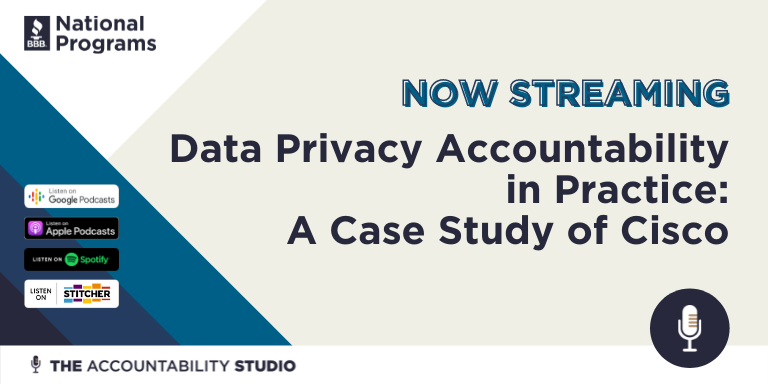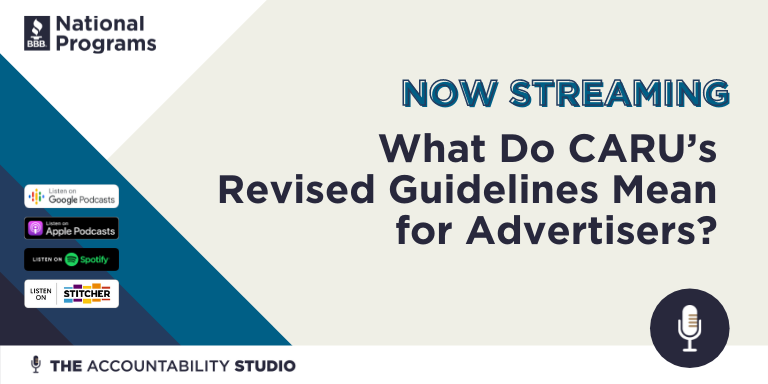Podcast: Play in new window | Download (Duration: 20:48 — 28.6MB) | Embed

It is not uncommon to hear that a child wants to be a content creator – making a living by sharing their hobbies, likes, and interests with a following on a social media platform like YouTube. A common business model for successful content creators is to work in paid partnership with a brand to market a product or service. How does that business model work when the influencer is a child?
In this episode of In the Sandbox, our host Rukiya Bonner, Director of the Children’s Advertising Review Unit (CARU), speaks with Pocket.Watch’s Julia Moonves and Angela Tiffin (a former CARU attorney) about the business of child influencers. Together, they break down the state laws protecting these young content creators – such as the Coogan law and the new Illinois child influencer law – as well as the role of a parent in the business and the special considerations that come into play when working with a young creator.
Key Takeaways:
- Clear and conspicuous disclosures are essential in influencer videos to protect children and comply with advertising guidelines.
- When partnering with creators, it is important to consider their established audience, content quality, and aligned values.
- Influencer laws, such as the Coogan law, help protect child creators by requiring a percentage of their earnings to go into a trust account.
- AI-generated children may impact content creation, but human creators offer authenticity and a connection that AI lacks.
- Pocket.Watch prioritizes the well-being of child creators and works to minimize their involvement in commercial aspects of the work.
Chapters:
- [00:00] Introduction and Overview
- [01:03] Concerns about Influencer Videos and Disclosures
- [02:52] Pocket.Watch: A Modern Kids Media Company
- [04:15] Angela Tiffin’s Role and Experience at K.R.U.
- [06:07] The Rise of Child Creators and Finding Partners
- [09:30] Protecting Child Creators and Vetting Families
- [12:49] Influencer Laws: Coogan Law and Related Legislation
- [15:37] Providing Disclaimers and Protecting Creators
- [17:34] The Impact of AI-Generated Children on Content Creation
- [19:01] Prioritizing the Well-being of Child Creators
- [20:24] Conclusion and Call to Action
Mentioned in this episode:
- CARU Finds YouTube Channel “Vlad and Niki” in Violation of its Advertising Guidelines; Recommends Disclosure Modifications
- Subscribe to the Online Archive
- CARU’s Advertising Guidelines
- Compliance Warning: AI in Child-Directed Advertising and Data Collection




